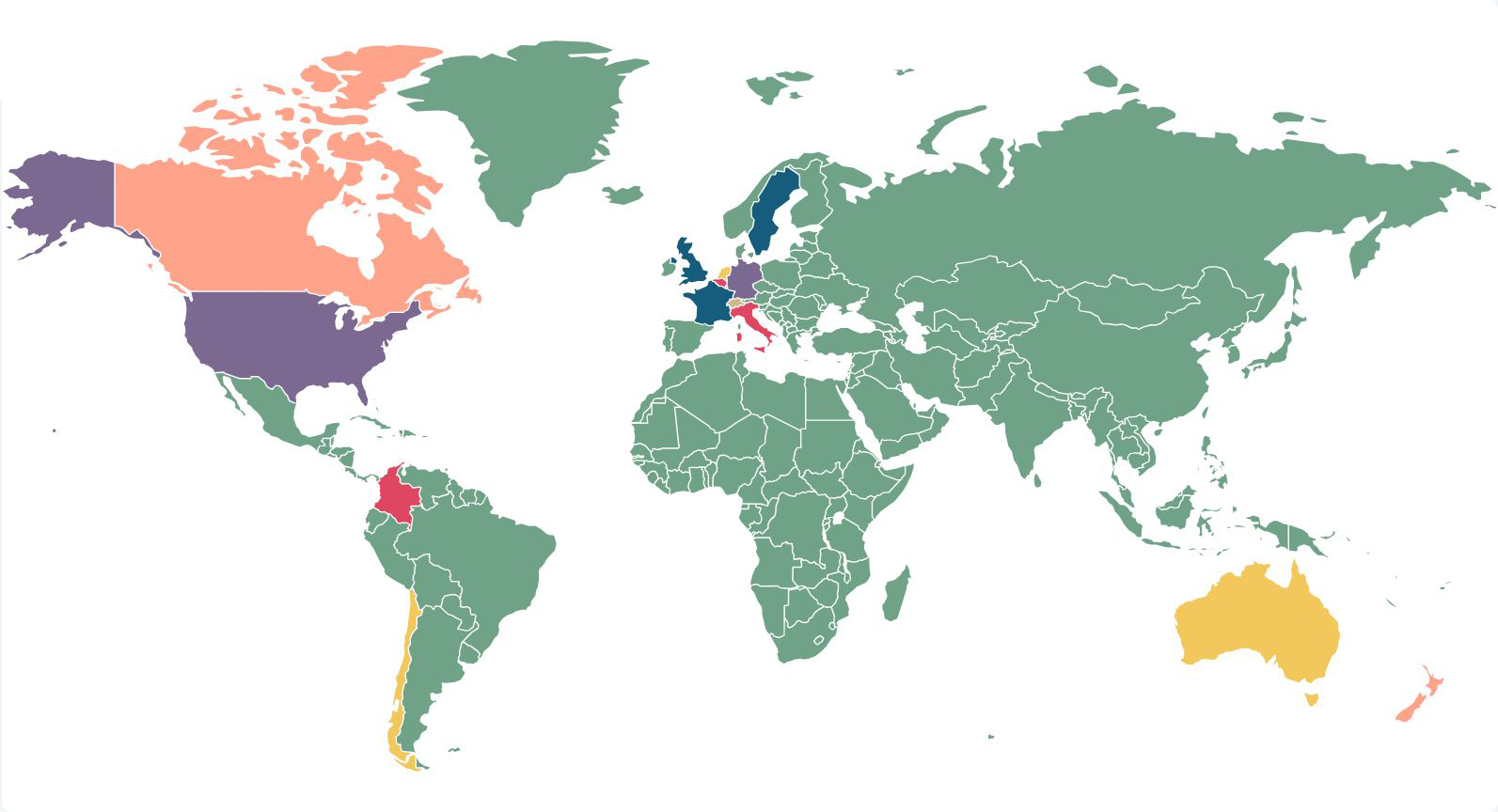France: Foreign insurers must take note of rigorous French policy wording requirements
When foreign insurers cover risks that are likely to give rise to litigation in France, they must be particularly attentive to the rigour imposed by the Cour de cassation (Supreme Court) on the drafting of policies. For example, in June 2023, the Cour de cassation ruled that the provisions of articles L. 112-4 and L. 113-1 of the French Insurance Code constituted overriding mandatory provisions binding on the French courts, regardless of the law designated by the policy. These articles stipulate that exclusion clauses must be written in highly visible terms and must be formal and limited (i.e. they must not empty coverage of its substance and it must be possible to determine by simply reading the clause what is covered and what is not). In the absence of such compliance, exclusion clauses will not be enforceable.
France: New developments on European group actions will significantly impact insurers
Insurers will need to adapt to the introduction of the new European-style group action in France. On 25 November 2020, Directive 2020/1828 on representative actions was passed, to be applied by 25 June 2023. A number of countries, including France, have yet to transpose the Directive into national law. The Directive requires all EU countries to have in place a mechanism for representative actions, with Member States providing for cross-border representative actions; introduces a compulsory system for the disclosure of evidence held by the defendant or a third party for the benefit of victims; and provides that all the costs of the action are to be borne by the unsuccessful party (the 'loser pays' principle). The French reform also intends to allow civil penalties to be imposed. The introduction of such a European group action will inevitably have a significant impact on the cost of this type of lawsuit.
France: The AI risk landscape is taking shape within the European Union
Given the absence of texts devoted to artificial intelligence (AI) in the legislation of Member States, the European Union has taken up the issue by means of three texts: the AI Act (adopted on 13 June 2024), establishing harmonised rules on artificial intelligence; the AI Liability Directive proposal, which introduces for the first time specific rules on damage caused by AI systems; and the updated Directive on Liability for Defective Products, which amends the framework laid down by the current Directive on Liability for Defective Products, adapting it to developments linked to new technologies, including AI. The AI Act aims to prevent risks and harm, and intervenes upstream of the damage, whereas the Directives aim to provide a framework for compensation in the event that the damage occurs.
France: Liability for defective products is adapting in line with new technologies
Liability for defective products is being reformed into a legal framework that recognises today's realities, and which favours the victims. On 28 September 2022, the European Commission tabled an initial proposal for an updated Directive on Liability for Defective Products. Following negotiations between the EU institutions, the agreed text for the Directive has now entered into force, giving Member States until late 2026 to arrange for transposition into national law. This Directive extends the concept of product to new technologies and makes it easier for the plaintiff to prove the losses by asking the court to order the producer to disclose relevant information. Under certain conditions, there will be a presumption that the product is defective and/or that there is a causal link between the defect and the damage suffered, and Member States will no longer be able to introduce an exemption for "state of the art" development.
France: Beware the two-year limitation period under the French Insurance Code!
Insurers need to be extremely careful about limitation periods when their policies are subject to French law. Article L.114-1 of the Insurance Code introduces a two-year limitation period for all actions arising from an insurance contract. Article R.112-1 of the Insurance Code requires most policies to indicate the two-year limitation period. This requirement has been extended by the Cour de cassation, which holds that the insurer is required to set out in the insurance contract the two-year limitation period, its starting points, the specific grounds for interrupting the limitation period set out in article L.114-2 of the Insurance Code, and the ordinary grounds for interrupting the limitation period set out in the Civil Code. Insurers must refer in full to the texts of the Insurance Code and the Civil Code, failing which the two-year limitation period will be unenforceable against the insured.
France: The US Environmental Protection Agency is taking far-reaching measures on PFAS
PFAS is currently a hot topic worldwide, worrying both society as a whole and the insurance industry in particular. As the underlying litigation expands around the world, regulations evolve in parallel. In the US, federal agencies are continuing to initiate PFAS regulatory actions that will pose compliance challenges. The US Environmental Protection Agency (EPA) intends to require all manufacturers of PFAS since 2011 to provide information on PFAS-containing products as of July 2025. The EPA is also proposing greater access to data on over 100 PFAS chemicals, and information will be added to the Toxics Release Inventory (TRI), aiming to increase transparency and public awareness. This will address growing concerns about the environmental and health issues linked to these chemicals. The risks posed by these changes to companies that manufactured or sold PFAS-containing products is clear. With the increased litigation risk comes the increased need to secure insurance cover, where much will turn on the specific facts and language of the policies at issue.
Germany: Expect new cyber challenges and opportunities
The ongoing race between IT security on the one hand and attackers seeking to exploit fresh vulnerabilities on the other will continue in 2025. Ransomware attacks will continue to be one of the most impactful cyber attack types for companies and their cyber insurers. We predict that cyber insurers will increasingly turn their attention to the investigation and pursuit of subrogated recovery actions. Recourse will not be against ransomware groups, but rather the policyholder's outsourced service providers in failing to ensure the security of the policyholder. These recoveries can, however, be technically and legally challenging , as the responsibility and contractual limitations of service providers vary on a case by case basis.
Germany: Cyber insurance will be key in embedding stronger security regulation
The increasing importance of cyber resilience is emphasised by a number of new legislative proposals and wider developments, such as technical requirements for IT security as part of the implementation of the EU NIS 2 Directive. More and more companies will be forced to assess their existing IT security measures and to adapt their cybersecurity strategies as legal requirements expand their scope. EU NIS 2 Directive, for example, expands requirements beyond the traditional critical national infrastructure companies.
Germany: Data breach claims will increase
Due to an increase in cyber incidents, we predict a similar rise in data breach claims. Although the European High Court has restricted the ability to claim for damages from cyber incidents as the data subject needs to show damage, it does not need to be material. The data processor needs to make sure it acts in line with data protection regulation. In addition to claims by data subjects, there is also the possibility of consumer protection authorities claiming against data processors in case of a data breach. Further, the ECJ has just acknowledged the possibility of a competitor claiming based on breach of GDPR regulation. This opens the door to different claims from different perspectives and requires even more attention on data processing compliance.
Germany: Expect an increase in transactional risk claims
The transactional risk insurance market has been very competitive over the last few years due to relatively low deal flow and new insurers and MGAs in the German market. This has led to falling premiums, lower retentions and broader coverage. As a consequence, an increase in claims is expected. In turn, this should lead to rising premiums, as it is likely that the broader coverage will remain. Irrespective of this, the steadily growing range of warranty and indemnity/transactional offerings in Germany shows that the market remains attractive for insurers. This will be all the more true if, as expected, the M&A market in Germany becomes more dynamic again.
Germany: Insolvencies will spark increase in D&O insurance claims
There was a significant increase in corporate insolvencies in 2024. According to the Federal Statistical Office, corporate insolvencies rose by 24.9% in the first half of 2024 alone, compared to the same period in the previous year, with the number of major insolvencies rising even more sharply. Companies from the construction industry, fashion retail and, increasingly, the automotive sector are particularly affected. With a slight time lag, this will be accompanied by an increase in large D&O insurance cases, as insolvency administrators have long since discovered existing D&O insurance cover as a means of increasing the insolvency estate. Of particular relevance in this context is the liability of directors for payments made after insolvency, which has been a significant driver of major claims for years.
Germany: There is a harder D&O market on the horizon
After a brief hardened market around the pandemic, things went back to normal. Prices went down, clauses vanished. But due to the increasing claims risk in a weakening economic environment, there are clear indications visible that a harder market is again in sight. D&O premiums will go up and also stricter wordings are expected.
Germany: The property and construction picture is evolving significantly
The global political upheaval is leading to geopolitical risk scenarios that will influence the scope of cover. The risk scenarios are diverse and differ not only according to the dimension of the violence exercised and the possible political objectives associated with it. General exclusions for war, sanctions clauses and territorial exclusions are becoming more relevant, including for business interruption and contingent business interruption. Climate change and natural hazards will also influence the claims picture, with legislative changes on climate-neutral transformation having a significant impact on risk and regulation. Inflation and rising prices are also causing insurance values to increase significantly, requiring adjustment to sums insured (to avoid underinsurance), limits, business interruption periods and premium increases.
Germany: Renewable energy ambitions will bring added risks
Germany will be climate-neutral by 2045, according to the Federal Ministry for Economic Affairs and Climate Protection. As a result, it is in the process of reorganising its energy production and the most important goals include: maintaining security of supply, favourable prices for households and companies, and climate-friendly generation without nuclear power and fossil fuels. Such new energy arrangements form the basis for many investment decisions, from grid expansion and the construction of wind and solar plants to the promotion of hydrogen projects. With these come a number of risks. For example, technical and operational risks can arise from wind turbines and solar installation maintenance issues. Environmental and health risks may occur from spills of chemical substances that could contaminate soil and water. Older turbines and/or those in remote areas where access is difficult increase financial risks. Renewable energy systems also contain materials that can be hazardous to the environment and recycling can be challenging.




